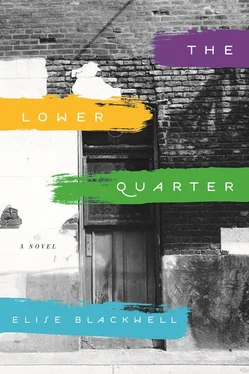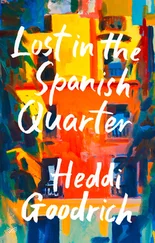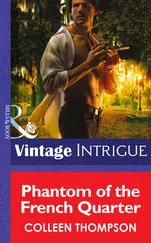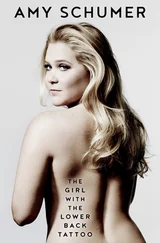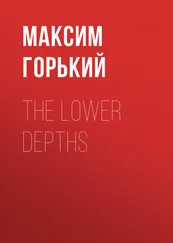In her hooded rain slicker, Johanna didn’t seem to mind the plan. They ascended the levee across from Jackson Square and looked across the swollen river, their shoulders at the same height, close but not touching. The walkway, which had been neatly laid for tourists, was separated by a sparse but even row of streetlights, now unlit, from the gray rocks that sloped down to the famous river. Up the river, maybe half a mile to their right, sat a useless mostly indoor shopping area and, behind that, spikes of taller corporate hotels desperate for the return of conventioneers. Perhaps the city’s best-known bridge to the West Bank crossed the river there. Capable of looking romantic in the right lights, it now looked ugly and functional — its twin peaks nothing but architectural necessity, its gray metal something chosen only by some equation to maximize relative strength against price.
“It seems that you want to tell me something or ask me something,” Johanna said, turning a partial profile toward him, the perfect slope of her nose extending just past the crinkled plastic hood of her raincoat.
She stood at Clay’s left, between him and what he considered her part of town: rougher but more interesting. On the West Bank in that direction were scaffolds and cranes, sitting in front of long, squat industrial buildings that might never be repaired. The river itself was nearly free of traffic: just a lone tugboat pulling a barge carrying what looked to be lumber, though it was already too far off to tell, heading slowly toward someplace near the river’s mouth into the Gulf. Asshole of the nation.
Clay stepped around to face Johanna more squarely, memorizing her features in the drab-green halo that obscured her hair, saving the image for later. “Both.”
“Tell first, then ask,” she said, starting again to walk along the empty walk toward the old Jax Brewery, passing usually full benches made vacant by some combination of hurricane depopulation and current dismal weather.
“When I told you that I didn’t know Ladislav was coming to New Orleans, that was true.”
She said nothing but walked more slowly.
“But when I told you I didn’t see him while he was here, that wasn’t true.”
Now she stopped and turned back toward the river. Her hood hid her head completely from him, but she seemed to be nodding. What she said was so quiet that he couldn’t quite hear it, but he thought she said, “You were the last person to see him.”
The memory is vivid, yet more like a memory of seeing a movie than being in one. Like sitting in an old theater, the red and gold of the seats and curtains and carpet once grand and now threadbare, the smells layered and faintly unpleasant, the movie on the screen larger than life but flat, its color washed toward sepia. Close shot of a hotel room, its fabrics old like the theater’s. The villain is square-headed and square-jawed. His mouth opens to reveal square teeth, spaced widely to reveal the blackness within him. Underestimating the strength of the hero, who is really an antihero because the best heroes always are, the bad guy taunts his weakness, besmirches the woman he loves, turns his back as his final mistake. The old phone on the nightstand is black and heavy. The audience gasps at the sound it makes, loud but corrugated, not the sound of a heavy object hitting a hard surface but the sound of something man-made crushing through skin, blood, and bone. The impact closes the black mouth. Outside the wind howls down an almost-empty street.
“I was the last person to see him,” Clay said, unsure whether he was repeating what Johanna had said or telling her something new. “And I thought that would make us both happy, that you wanted him dead just as much as I did.”
He wanted to tell her more, tell her how it both was and wasn’t an accident that he’d seen Ladislav. Not an accident, because his father was obviously behind the vile Czech’s presence in the city, but a fluke that his trip had immediately preceded the storm, mere chance that his father had been unable to return home as planned for the rendezvous. Unless it was destiny, which Clay had never believed in but was beginning to contemplate, it was sheer luck, good luck and bad luck all twisted together, that Clay had taken the call, recognized the voice, pursued the meeting, and gone to that hotel, perhaps knowing what he would do and certainly knowing what he wanted to do.
“Is that what you brought me here to ask me? You want to know that I am glad he is dead?” Her hands were shoved stiff into the pockets of her jacket, which was slightly too short for her, its waist falling at her rib cage.
“Sort of, yes, but what I want to know is more general. I want to know what you want now, if you could have anything.”
“Besides changing the past?”
The mist had turned to drizzle, slanting at them from the river, and Clay faced it, let small drops trickle down his face like cold tears. “Would you change the past?”
“Of course I would, but also I like my life here. But, yes, of course I would. I would probably go all the way back. All the way and then start the clock over.”
“It can be implausible but not impossible, what you ask for, so besides changing the past, what do you want?”
Her eyelashes held drops of rain, but her eyes were dry; she was not crying. “I would have to think about it.”
“Don’t you think about it all the time?” he asked.
She reached for him, held his forearm between both her hands, an initiation of physical contact that shocked him because he knew he repulsed her. “I don’t,” she said, still looking away at the river. “Hardly ever.”
“Then let me ask you the other: Are you glad Ladislav is dead?”
“I think so, yes. If he were here, so close to me as he was, then I am glad he is dead. I would not have wanted to ever see him again, not even from a distance. But I have always blamed him less than you did. I was stupid to go with him. He was just playing his part in the world. If not him, then it would have been someone like him. And someone else and someone else.”
Clay felt his anger rise, the sides of his neck heating in streaks. “How can you defend him? He’s a parasite. No, much worse. And you were a victim.”
The hood moved side to side. “Not only that, but I don’t blame myself more than a little, and I don’t defend him. But Ladislav, people like him, they just try to find a way in the world. Some man in Kenya, his children are starving, and he kills an elephant. Is it his fault, or do we blame the rich people who want ivory? The analogy is not so good, but you know what I mean. Worse to me are the people who pay for the rare and bad things that they want but will not get their hands bloody acquiring them. Demand and supply, as they say.”
As Clay listened, his plan both solidified and complicated. “You mean me,” he said, spitting the words, but softly.
She looked at him. “I was not thinking of you, no, but I guess that is true, too. But you didn’t know, not really.”
“I should have. Ignorance is a poor excuse if it’s willful. Or I suppose I should say lazy. In my case, it was lazy.”
Here, finally, they were talking about the thing that mattered, the most real thing between them, but as he tried to name the truth, the truth was that he couldn’t really remember. He’d paid Ladislav for a room and a beautiful girl and permission to do to her whatever he wanted, to finally live out in flesh the scenes he had imagined since he was twelve years old, since years before he had even kissed a girl. And in his euphoria he’d done so without stopping to consider that she didn’t want to be there. Or maybe he’d known that — surely he’d known that — but he hadn’t considered the gradations of didn’t want to be there, which ran from the unsympathetic version of some girl cornered by bad choices and an unwillingness to give up an addiction to Johanna’s tragic lack of all consent whatsoever. She hadn’t made some deal with the devil; she’d been imprisoned by one. The situation wasn’t what he’d really wanted at all, but he hadn’t stopped to think about that, not for a moment, because all he’d thought about was getting what he did want. He was giddy with fruition.
Читать дальше
